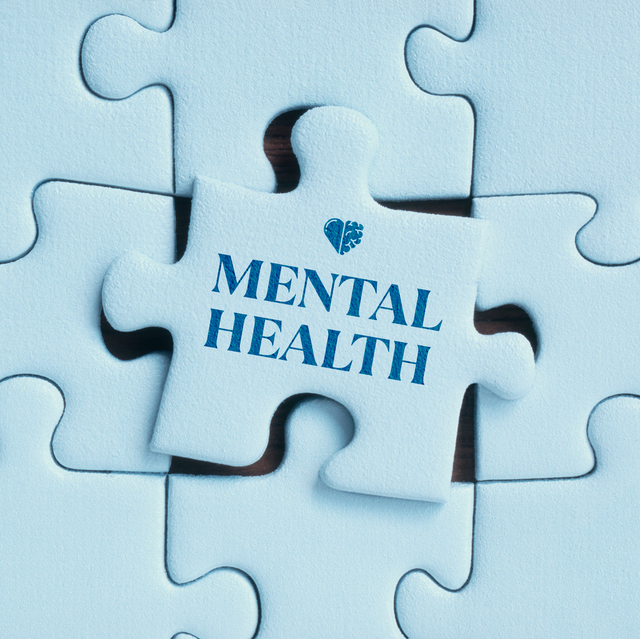Recognizing the Influence of Workout on Mental Health and General Wellness
In the world of psychological health and total wellness, the importance of exercise is a complex subject that calls for expedition. Beyond its physical advantages, the impact of workout on one's psychological health has actually been a subject of growing passion and research study. The intricate interplay in between exercise and psychological wellness introduces a range of positive outcomes that extend much past the boundaries of a fitness center or a running track. As we navigate with the intricacies of this relationship, a much deeper understanding of how workout affects our frame of mind and total wellness emerges, clarifying the extensive implications it holds for our day-to-days live and lasting health.
Advantages of Exercise on Mental Health And Wellness

Routine workout has been shown to substantially improve psychological wellness outcomes in people of every ages. Taking part in regular exercise not only benefits physical health but additionally plays an important role in enhancing psychological wellness. One of the main advantages of exercise is its ability to lower symptoms of anxiety and depression. Exercise stimulates the launch of endorphins, likewise called the "feel-good" hormonal agents, which can help minimize feelings of stress and anxiety and improve mood.
Moreover, exercise has been linked to enhanced cognitive function and total mind health. In addition, exercise promotes better sleep patterns, which are important for keeping good psychological health.

Link Between Workout and Stress And Anxiety
Workout acts as a powerful device for alleviating stress and promoting psychological health by promoting the launch of endorphins and cultivating a feeling of relaxation and restoration. When tension degrees increase, the body's fight-or-flight response is activated, resulting in increased cortisol levels. Normal exercise aids combat this reaction by reducing cortisol degrees, which consequently eases tension. Furthermore, exercise advertises the production of endorphins, frequently described as the body's all-natural pain relievers, which act as state of mind lifts and tension relievers - Mental Health Services.
Involving in exercise additionally offers a diversion from day-to-day stress factors, allowing individuals to concentrate on the here and now minute as opposed to pondering on resources of stress. Additionally, exercise can enhance self-confidence and self-confidence, providing a sense of success and control that can combat feelings of vulnerability often connected with stress and anxiety. By integrating exercise into a normal regimen, people can successfully handle tension levels, leading to boosted psychological well-being and general top quality of life.
Influence of Exercise on Mood
The connection between workout and state of mind is well-documented, with many studies highlighting the favorable results of physical activity on mental health and wellness. Furthermore, regular workout can lead to enhanced self-esteem and a feeling of achievement, which can even more boost one's total state of mind.
Moreover, the influence of exercise on mood expands beyond just the instant post-workout duration. Research suggests that people that maintain a consistent workout regimen are most likely to experience long-lasting improvements in their state of mind and psychological state. This can be credited to the structural adjustments in the brain that occur as an outcome of routine physical task, such as increased connection between mind regions in charge of managing feelings.
Exercise and Cognitive Function
Countless studies have actually shown the significant influence of physical activity on cognitive function, highlighting the complex partnership between exercise and psychological procedures. Taking part in normal workout has actually been revealed to improve different elements of cognitive function, consisting of memory, attention period, analytical abilities, and overall mental skill. Physical activity promotes the launch of natural chemicals such as dopamine and serotonin, which play vital roles in cognitive function and mood guideline. Additionally, exercise promotes the development of brand-new mind cells and strengthens the connections in between them, leading to improved cognitive performance.
Furthermore, constant exercise has been linked to a minimized danger of cognitive decrease and neurodegenerative illness such as Alzheimer's. Research studies recommend that individuals who preserve an energetic way of life throughout their lives experience slower rates of cognitive decline contrasted to those who are sedentary. On the whole, the proof overwhelmingly sustains the notion that regular exercise is not just helpful for physical wellness but additionally plays wikipedia reference an important duty in protecting and boosting cognitive function.
Approaches for Incorporating Workout
Adopting a structured strategy to integrating physical task into everyday regimens can considerably boost the possibility of keeping a constant exercise routine. One efficient technique is to set specific, possible objectives. These goals ought to be practical and tailored to specific abilities to avoid sensations of failure and make certain inspiration. Furthermore, integrating workout right into existing regimens, such as strolling or biking to work, taking the stairways as opposed to the lift, or organizing normal workout sessions, can aid make exercise a regular component of day-to-day live.
One more helpful strategy is to discover activities that are pleasurable. Whether it's dancing, cycling, yoga, or swimming, participating in activities that bring satisfaction boosts the possibilities of sticking to the workout regimen in the lengthy run. In addition, varying the kinds of workouts and alloting time for both cardiovascular and strength-training activities can protect against dullness and supply an alternative technique to fitness.
Integrating exercise into social tasks, such as joining a sports team or exercise group, can also foster a feeling of neighborhood assistance and liability, making it much easier to stay committed to regular workout. By executing these strategies, people can produce a sustainable and fulfilling workout regimen that advertises mental health and overall health.
Conclusion
In final thought, workout has various advantages for psychological health and overall wellness. By comprehending the influence of exercise on psychological wellness, people can take proactive steps to prioritize their physical task and enjoy the favorable impacts on their psychological and psychological state.
